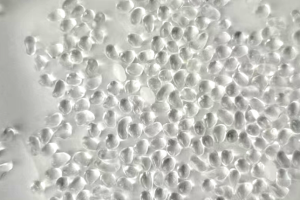January 7, 2025 – A research team led by Professor Kyung-Jin Kim from Kyungpook National University in South Korea, in collaboration with CJ CheilJedang, has successfully developed the world’s most efficient biocatalyst for breaking down polyethylene terephthalate (PET) plastic. This groundbreaking achievement marks a significant breakthrough in the field of sustainable recycling. The research was strongly supported by the Advanced Biomedical Technology Program of the Ministry of Science and ICT in South Korea and has been published in the prestigious scientific journal, Science.

PET plastic, widely used in beverage bottles, fibers, and various other applications, is one of the few plastics that can be decomposed into monomers by natural enzymes. The research team innovatively employed a landscape analysis approach to comprehensively screen and characterize the degradation potential of nearly 2,000 candidate enzymes. Through this method, they mapped the adaptability and stability landscape of the enzymes and selected high-performing ones for further testing and optimization.
According to the Color Masterbatch Industry Network, scientists and industries globally have been actively exploring the potential of PET-degrading enzymes (PETases), including IsPETase from Ideonella sakaiensis and leaf-compost cutinase (LCC). However, little is known about how many enzymes with such capabilities exist in nature and which ones hold greater potential for plastic degradation. To address this, the research team leveraged sequence databases to access natural diversity and developed a novel method to successfully identify adaptable enzymes among the mix.
To gain a more comprehensive understanding of the polyesterase-lipase-cutinase enzyme family landscape, the team also generated a two-dimensional semantic network. They controlled the network’s stringency through a neighborhood analysis module to analyze sequence homology distances. Based on this, they used hierarchical and cluster sampling methods to sample representative nodes and experimentally measured the PET degradation activity and thermal stability of these enzymes. This research not only provides a comparative and holistic view of the evolutionary success of naturally occurring PETases but also lays a solid foundation for future industrial applications.














